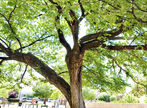What is a L.O.S.S. Team
What is Suicide Postvention
and Why is it Important?
L.O.S.S. – Local Outreach to Suicide Survivors – is an active suicide postvention model. This model involves two or more trained volunteers, called a L.O.S.S. Team, who proactively go to the scene, or shortly after, of a suicide to provide immediate support to those left behind. At least one of these two trained volunteers is a survivor of a suicide loss. L.O.S.S. Team volunteers are present to those left behind in a nonintrusive manner. They provide support, resources, and understanding.
Why are L.O.S.S. Teams Important?
A L.O.S.S. Team can provide a lifeline to the newly bereaved. Having a person who has lost someone to suicide present in the immediate aftermath can provide an instillation of hope. Through shared understanding and experience, L.O.S.S. Team volunteers can be a
calming and reassuring presence. Those who have lost someone special to suicide can provide a sense of normalcy and hope simply by introducing themselves as someone who has also been impacted by a suicide death.
While each L.O.S.S. Team has it’s own unique characteristics based on the needs of it’s community, there are three commonalities that they all share:
-
They proactively reach out to the newly bereaved by suicide.
-
At least one of the volunteers who responds is a suicide loss survivor (peer model).
-
L.O.S.S. Teams exists for the same purpose: To be an instillation of hope.
Dr. Edwin Shneidman suggested the concept of “postvention as prevention for the next generation” in the preface to Al Cain’s publication "Survivors of Suicide" first published in 1972. Dr. Frank Campbell - the creator of the L.O.S.S. Team model - has used the concept of postvention as prevention to govern his work with suicide survivors since 1986. It was his personal goal to interrupt the multi-generational impact of risk that survivors are often reported to have as a legacy of suicide.
The original L.O.S.S. team (Local Outreach to Suicide Survivors) was launched in 1998 in Baton Rouge, LA. Dr. Campbell developed the L.O.S.S. team model after his research revealed that it took an average of 4.5 years for survivors of suicide loss to reach out for help. During those years many survivors suffered in silence and developed unhealthy coping skills, which made the access to suicide grief support critical. This model caught the attention of the Discovery channel and Dr. Campbell’s efforts were featured in three Discovery channel documentaries which were seen nationally and internationally. Since then, Dr. Campbell has traveled both internationally and across the United States training others, resulting in the launch of L.O.S.S. teams from Singapore to Northern Ireland.
Postvention is Prevention
Read more about the Circular Model of Suicide Reduction by clicking here or on the graphic to the left.

Trees are incredibly resilient. In the midst of storms and disasters that topple man-made structures with ease, these giants of the plant world stand and endure. The tree in our logo is meant to show that though the strongest winds may blow and even damage, life does return.
This resilience is best demonstrated by the story of a tree in Oklahoma City on one fateful day in 1995. The tree was situated directly across the street from the Alfred P. Murrah Federal Building, completely exposed to the full force of the 4,000-pound bomb that killed 168 people and injured hundreds more. (see pictures below)
This century-old American elm could have succumbed to the brutal attack of the Oklahoma City bombing. But it survived. It grew. And more importantly, it became an icon to people there and around the world. Because like the city, the people, family members of victims, the survivors, first responders and others, it endured what most thought would break it.
There is also the story about a tree that was found at Ground Zero. It was severely damaged with broken and burned branches, It was removed and nursed back to health by the NY Parks and Recreation Department.
After its recovery and rehabilitation, the tree was returned to the Memorial in 2010. New, smooth limbs extended from the gnarled stumps, creating a visible demarcation between the tree’s past and present. Today, the tree stands as a living reminder of resilience, survival, and rebirth.
Just like these trees, a survivors life may have a visible or invisible demarcation between their life that was and the life that is now. Yet there can also be the signs of new growth and hope, even from the stumps of old wounds.









